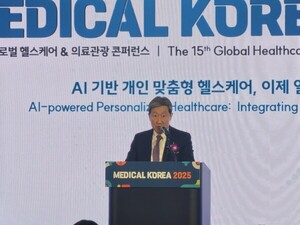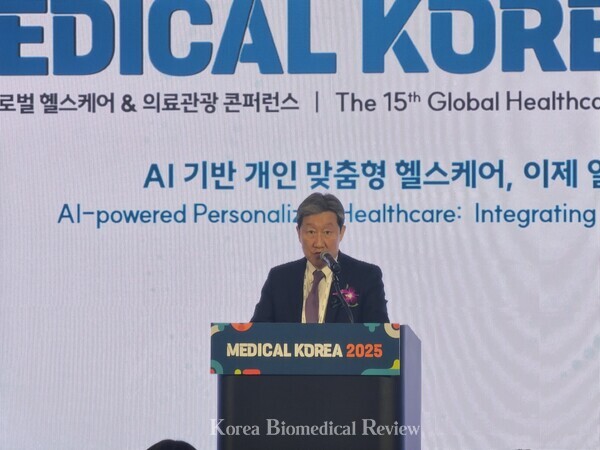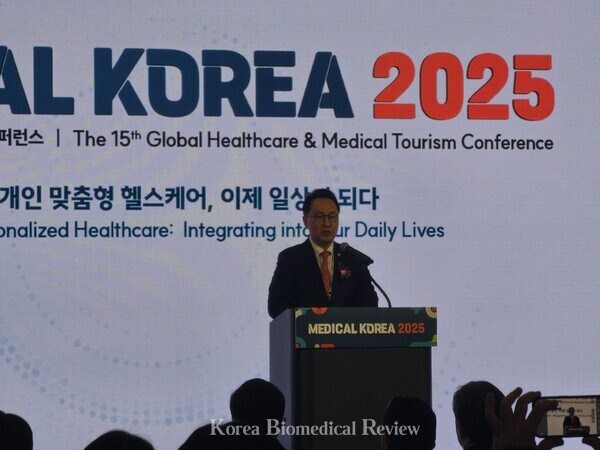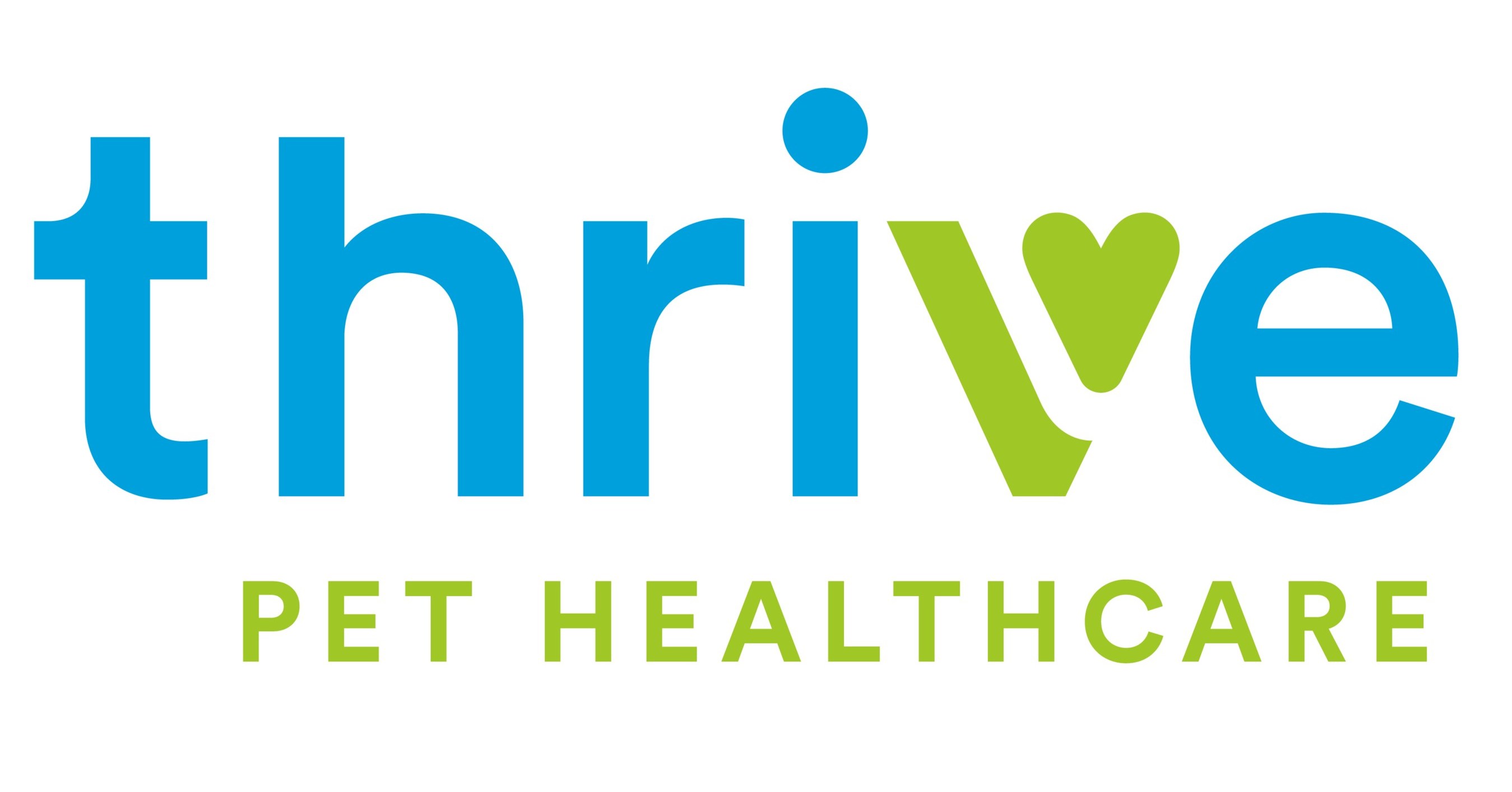Korea aims to attract 1mil. foreign patients, promotes AI-powered healthcare < Policy < Article

The Korean government, the National Assembly, and hospital representatives gathered in Seoul to emphasize their commitment to advancing the globalization of Korean healthcare at the opening ceremony of Medical Korea 2025, held on Thursday.
Running from Thursday to Saturday at Coex in southern Seoul, Medical Korea 2025 marks its 15th edition under the theme “AI-Powered Personalized Healthcare: Now a Part of Everyday Life.” The event features an academic conference on AI-based healthcare, business meetings between domestic and international companies, and promotional exhibitions showcasing Korea’s medical strengths.

During the opening ceremony, government officials expressed strong expectations for Korea’s expanding role in the global medical market. Korea Health Industry Development Institute (KHIDI) President Cha Soon-do, who delivered the opening remarks, highlighted the conference’s long-standing impact.
“Marking its 15th anniversary, Medical Korea has played a pivotal role in expanding global healthcare trends since 2009, when Korea first allowed the attraction of foreign patients,” he said. “We must take a new step forward in innovating Korean healthcare and setting a strategic direction for the global healthcare industry.”
He particularly highlighted the Medical Korea Zone, an exhibition promoting Korean medical excellence, as a key initiative in this effort.
“This year marks the first attempt that we established such a zone,” Cha said. “The zone includes K-Beauty Zone, Hospital Pavilion, Local Government Pavilion, and Industry Connection Pavilion.”
Starting next year, leading global medical institutions and agencies will be invited to establish a collaborative business space, Cha added.

Second Vice-Minister of Health and Welfare Park Min-soo praised Korea’s remarkable growth in attracting foreign patients.
“Korea has become a global leader in healthcare infrastructure and technology,” Park said. “In 2009, the number of foreign patients stood at 60,000, but by 2023, it had increased tenfold to surpass 600,000.”
This year, it is expected to exceed 1 million, Park added.
He further stressed the country’s continuous medical advancements.
“This achievement signifies the world’s trust in Korean healthcare,” Park said. “Korea is establishing itself as Asia’s premier medical tourism hub while also pioneering innovations such as the opening of healthcare data to public institutions, expanding smart hospital models using ICT, and enhancing personalized patient care.”
Moving forward, the government will continue to improve healthcare quality and safety while fostering AI-driven healthcare advancements, he added.
The National Assembly also expressed strong support for medical globalization.
“The key topic in 2025 will be digital healthcare,” said Rep. Lee Ju-young, a member of the National Assembly’s Health and Welfare Committee from the New Reform Party. “From medicine to research, the bio-healthcare sector is emerging as Korea’s next economic driver and a value that unites the world.”
The National Assembly will explore ways to deregulate and accelerate growth in this field, she added.
Kim Mi-ae, a People Power Party legislator and secretary of the Health and Welfare Committee, reaffirmed legislative backing.
“We will provide policy and legal support to strengthen Korea’s global competitiveness in healthcare. Institutional frameworks will be enhanced to facilitate international patient access to Korean medical services,” Kim said.
Similarly, Rep. Kang Sun-woo of the main opposition Democratic Party of Korea (DPK) emphasized AI-driven personalized healthcare as a core component of future medicine.
“Korean healthcare must align with and lead global trends,” Kang said. “I hope this event strengthens our medical industry’s competitiveness and accelerates Korea’s leap into the global market.”
From the hospital sector, Kim Young-tae, President of the Korean International Medical Association (KIMA) and President and CEO of Seoul National University Hospital, underscored the organization’s contributions to global medical collaboration.
“Founded in 2010 with official approval from the Ministry of Health and Welfare, KIMA represents Korea’s only private sector organization dedicated to international healthcare,” Kim said. “We have strived to harmonize government policies with the needs of medical institutions while promoting Korea’s medical excellence worldwide.”
Kim also emphasized the transformative role of AI in medicine stating that AI technology is now deeply integrated into everyday life, including life sciences and medical fields.
“I hope this event serves as a valuable platform for sharing the latest global healthcare trends and fostering international cooperation,” he said.
link








